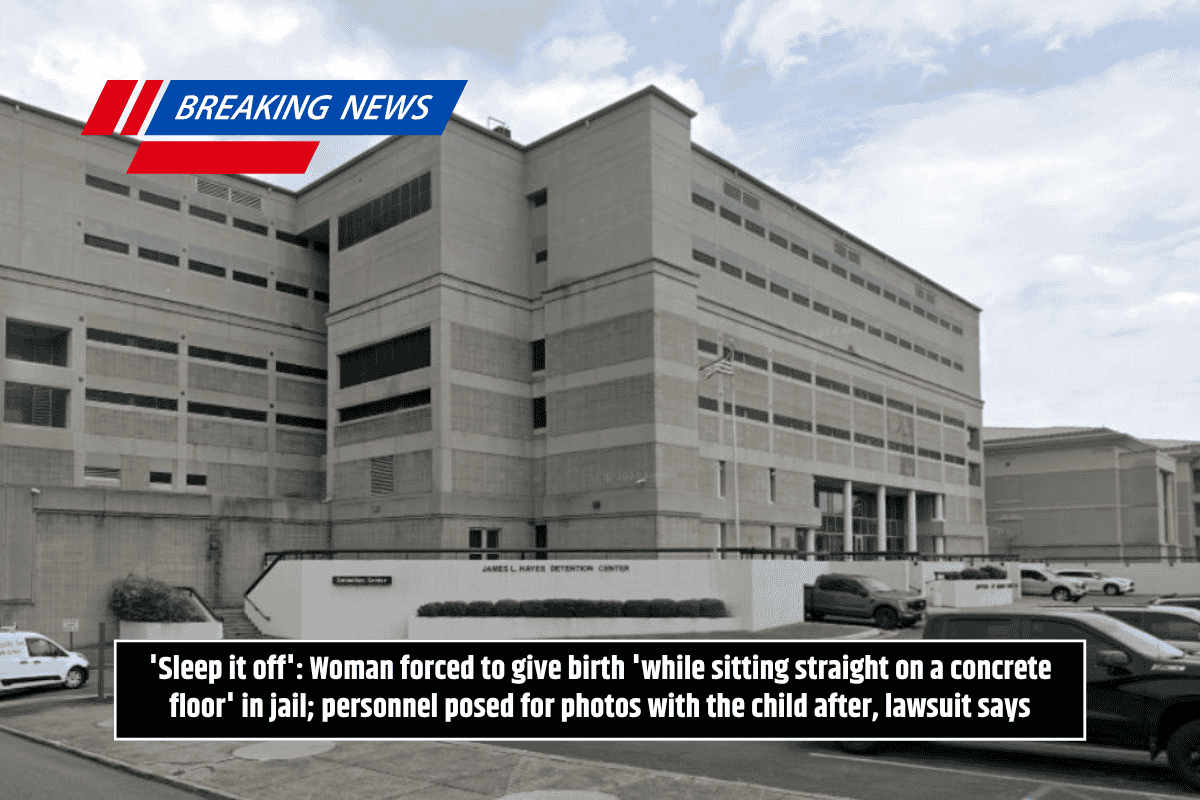Ashley Caswell, a woman who was left to give birth alone in an Alabama jail shower, has settled a lawsuit against Etowah County. The lawsuit was filed after she was forced to deliver her baby without medical assistance in 2021, a situation that nearly led to her death.
The lawsuit alleged neglect and mistreatment by the county and jail officials.
The Incident at Etowah County Jail
Caswell’s lawsuit stems from events that took place in October 2021 when she was an inmate at Etowah County Jail. Caswell was arrested in March 2021 under Alabama’s chemical endangerment law, which punishes mothers who use drugs during pregnancy.
During her time in jail, she claimed that she was denied proper medical care, including prenatal care and access to a specialized facility for high-risk pregnancies.
According to Caswell, she was not taken to scheduled prenatal appointments and was forced to sleep on a mattress on the floor, even though medical staff had recommended she be given a bottom bunk. This lack of medical attention led to her high-stress pregnancy and poor nutrition, as doctors later reported.
The Delivery in the Jail Shower
Caswell’s situation became even more dangerous when her water broke on October 16, 2021, just days before her labor was supposed to be induced. Despite telling the jail staff she needed emergency care, they allegedly told her to “lie down” in a medical unit. She spent about 12 hours in agonizing pain, begging for help but was reportedly ignored.
The jail staff eventually took her to the shower room where, with no medical personnel present, Caswell gave birth standing up on a concrete floor. The pain was unbearable, and she later described the experience as feeling like her body was “ripping apart.”
Afterward, a few jail staff members reportedly posed for a photo with the newborn, with the umbilical cord still attached, before she was taken to the hospital.
The Lawsuit and Settlement
In her lawsuit, Caswell accused Etowah County of violating her constitutional rights by denying her necessary medical care during her pregnancy. Her lawyers argued that the jail’s actions were a direct violation of her rights to adequate healthcare, which is critical for any pregnant woman, particularly those with high-risk pregnancies.
Although the exact terms of the settlement were not made public, Caswell expressed relief in a press release, stating that the lawsuit allowed her to speak up for herself. She hopes that her case will lead to better treatment for other women who may face similar circumstances.
Legal and Advocacy Support
Caswell’s lawsuit was backed by organizations like Pregnancy Justice, the Southern Poverty Law Center, and Sullivan & Cromwell LLP. These groups emphasized that Caswell’s treatment was part of a broader issue of inhumane conditions at the jail and that this case should be a warning to authorities to improve their treatment of incarcerated pregnant women.
Continued Struggles After Release
After her release from jail in April 2022, Caswell’s struggles with drug addiction continued. She tested positive for methamphetamine while pregnant again, and was arrested and charged under the same law that had led to her initial incarceration.
The case has drawn attention to the often harsh and discriminatory application of Alabama’s chemical endangerment law, particularly towards pregnant women, and calls for reform to prevent further injustices.
Ashley Caswell’s painful and frightening experience highlights the importance of proper medical care, particularly during pregnancy. The settlement of her lawsuit is a significant step towards justice, but it also underscores the need for better treatment of incarcerated individuals, especially those who are pregnant.
The case serves as a reminder of how essential it is for prisons and jails to provide adequate care for all their inmates.
